#opposing airmen
Text
The Fateful Dawn :: Richard Leslie
The Fateful Dawn :: Richard Leslie
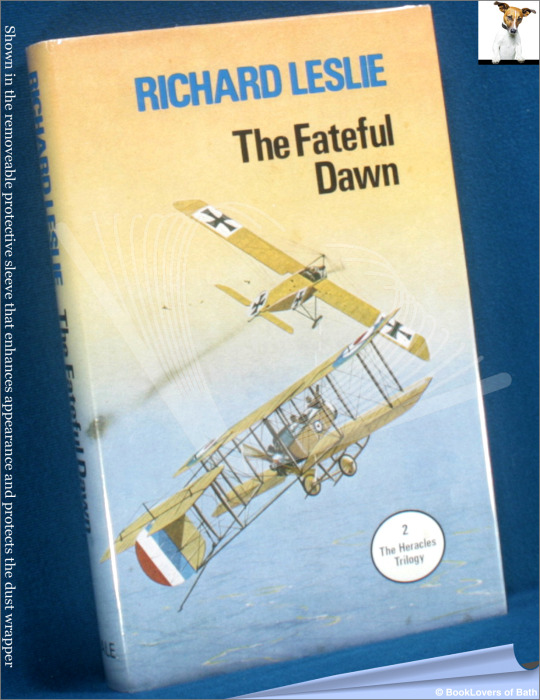
View On WordPress
#0-7090-1419-8#aeroplanes#air fighting#aircraft#books by richard leslie#first edition books#heracles trilogy series#machine-guns#opposing airmen#peter endsleigh castle#planes#winter 1916
0 notes
Note
Ok but hear me out - Bucky and reader rooting for different baseball teams
⭑ saw this and immediately had to answer. i love this concept and competitive bucky will live rent free in my mind for the next 4 months thank you
⭑ no warnings except language, drinking, bucky and reader being competitive, gender neutral!!!
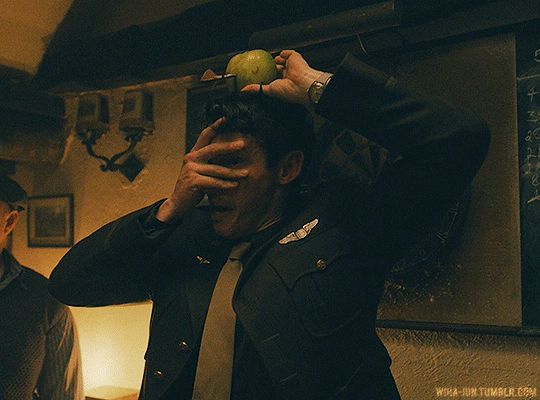
You sat back in your chair, movements languid as you sipped your beer, shoulder to shoulder with Curt and Buck. The bar was packed with both American and British airmen alike—you were focusing in and out of the conversation in front of you. You’d caught a lot of smack talk between your friends beside you, and the RAF men across the table. They all wore smug looks, and spoke poshly. Your lips wrapped around your beer as you tipped the rest of it back. You caught some of the words.
“If you wanna get the Major excited,” Curt started, reaching for the refill Crosby set down. “Baseball.” Curt stated.
Major John Bucky Egan turned, brows shooting up. “Yeah! Specifically Yankees.” You rolled your eyes at this. The Yankees? Out of all the teams, Egan was rooting for them? Bucky caught the action, and he sat up straighter, brows furrowed. “What was that, L/N? You rolled your eyes.”
You shrugged, grabbing your new beer. “Just…didn’t pin you for a Yankees guy, is all.” you had muttered in response, lips forming a thin line.
Bucky scoffed. “I love the Yankees. You probably root for the Cardinals or somethin’…” Bucky replied offhandedly, shaking his head.
It went silent for a moment. You blinked at the Manitowoc-born man for a few seconds, jaw dropped. “What the hell is that supposed to mean?” you asked, eyes narrowing towards him. “The Cardinals are great.” you defended.
“They’re not bad, per se. But, Yankees are better—by a long shot.” Bucky stated, looking at you with wide eyes. This was a revelation for the both of you. You’d known each other for months, and you’d never known that you’d rooted for opposing teams.
“You’re just mad we kicked your ass at the World Series in—” you started, but Bucky intervened.
“No, no, no—I’m not mad, *sweetheart*. I’m just sayin’ that when they’re head to head again, we all know who’s gonna win.” Bucky said, smiling lopsidedly, cheeks flushed from the alcohol.
You huffed. “Yeah, the Cardinals—”
“You misunderstood, it’s gonna be the Yankees—” Bucky interjected again. The RAF men across the table watched the banter back and forth with creases between their brows. The argument definitely wasn’t helping the tension between sides of the tables. Between you and Bucky sat Buck, who had his arms crossed. Buck didn’t give two shits about baseball, or any sport for the matter. He looked like he was about to explode—which was a lot considering Gale Cleven was a very patient man. Reaching for his ginger beer, Buck sighed, lips forming a thin line. He glared daggers at Curt, who’d started the topic of baseball.
“Sorry that I like watching a good team, it’s just—” Bucky was saying. His words were cut off from the sound of Buck setting his bottle on the table roughly, the sound silencing the banter.
“How about they both suck?” asks Buck. “Because you guys really need to shut up…” he muttered. It was silent for a moment—then, you and Bucky were at each other’s throats again. Buck huffed, shaking his head. He gave one last glare to Curt, who just shrugged sheepishly. Some friends he had, right?
#hbowar#callum turner#hbowar imagines#masters of the air imagines#masters of the air#bucky egan x reader#john egan
128 notes
·
View notes
Text
As the name suggests, the World Wars involved the world. People from all over served, and this includes people from African and Carribbean countries, yet I feel they are not so well-remembered in media and the history books for their heroics and sacrifices. Here are a few icons among many below.
Eugene Bullard

Eugene Jacques Bullard (1895-1961) was one of the first black American pilots and served in the French air force’s Lafayette Flying Corps, an all-American volunteer outfit, in World War 1. Meanwhile, in World War 2, Eugene Bullard served as a spy for France, where he also proved highly successful against the Nazi regime. Bullard was fluent in English, German and French, as well as a boxer and self-taught Jazz musician.
Eugene Bullard was awarded fifteen French war medals: Knight of the Légion d’honneur, Médaille Militaire, Croix de Guerre, Volunteer’s Cross (Croix du combattant volontaire), Wounded Insignia, World War I Commemorative Medal, World War I Victory Medal, Freedom Medal, and the World War II Commemorative Medal.
Walter Tull

Lieutenant Walter Tull (1888 - 1918) was the first British-born black army officer and the first black officer to lead white British troops into battle. He fought on the Somme in 1916 and became the first black combat officer in the British army in spite of a military rule officially excluding "any negro or person of colour” from that position. Before the War, he was a pioneering black football player and the first black outfield player to feature in the English top flight, with two seasons at Tottenham Hotspur.
Sadly, Walter Tull was killed in 1918, during the early German spring offensive, and was never awarded the military cross that he was recommended for.
Johnny Smythe

Born in Sierra Leone, Johnny Smythe (1915 - 1996) successfully made it into RAF aircrew during the Second World War. Smythe trained as a navigator, having a great talent for mathematics. He successfully navigated 26 bombing missions over Germany, although was unfortunately shot down on his 27th mission and captured. Smythe would spent the last two years of the war in Stalag Luft I, an infamous Lufftwaffe-run POW camp, until he was liberated by the Russians in 1945.
In 1948, Johnny Smythe served as the senior officer aboard the Windrush. After pursuing a career in law and working as the Queen's Counsel for Sierra Leone for a number of years, in 1961 he was appointed Solicitor General of the newly independent Republic of Sierra Leone. In 1978, he awarded the Order of the British Empire (OBE) for his outstanding service.
Ulric Cross
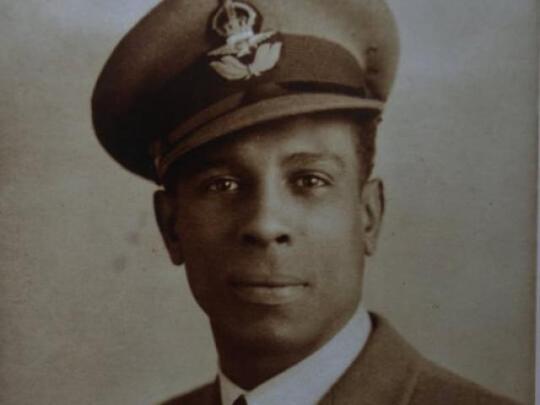
Ulric Cross (1917 - 2013) was Trinidadian and one of the most decorated Caribbean airmen in WWII. Joining the RAF at 24, he trained as a navigator and joined 139 Squadron, gaining the nickname ‘The Black Hornet’. Cross was an expert in precision bombing and later joined the ranks of the elite Pathfinder Force, flying high-risk missions into enemy territory as low as 50 feet as opposed to 25,000 like most pilots. While Cross was offered the option to rest after completing 50 missions, he instead volunteered for another 30 missions over enemy territory. At the end of the War, Cross had flown a total of 80 missions.
For his undeniable commitment, hard work and skill, Cross was awarded the Distinguished Flying Cross and the Distinguished Service Order.
#world war 2#world war 1#us history#uk history#africa#sierra leone#trinidad#black soldiers#world war means WORLD War#someone write a movie about these guys and many others#history#black history#caribbean
151 notes
·
View notes
Text
Its time to talk about Stargate SG1, which literally nobody cares about anymore.
The two episodes "Heroes" at the end of season 7 are incredible, a true tour de force. It plays with both expectations set after 7 prior seasons, and examines the SG:C in an new and incredible light.
The first episode starts like an archetypal "questioning the SG program from an outside perspective" as a TV crew is sent to film a documentary inside Cheyenne Mountain. The journalist, Bergman, is presented originally as a fool, bumbling and stumbling all the way. Nobody wants to talk to him, and it’s understandable because again and again episodes over prior seasons have reinforced the necessity of secrecy. Bergman is an outsider who questions too much, too fast, and endangers the program.
However even in this first episode, Bergman’s point are relatable. Yes, filming is important, people will eventually learn the truth and footage is needed. Over the episode he turns from a bumbling fool to an annoyance to the guy you hate but makes a good point. He compares the program to D-day and to the Apollo missions, all positive examples.
And at the beginning of the second episode his turn is complete. He gives a speech that in fact he HAS to film, to show, because the men and women of the SG:C are giving their lives for the whole of humanity. People are dying, a war is being fought, and it needs to be recorded. I think this is the first time the audience is truly asked to consider what would the SG program look like if it went public. Not from a geopolitical perspective, but a human one. And not as a threat, but an eventual necessity.
Now the second episode is in 3 simultaneous parts 1) an almost textbook war documentary of a battle where it is known early on a casualty happened, 2) Bergman trying to learn about this battle and casualty and trying to show these airmen as heroes, and 3) a investigation being led by an ally of bad politician senator Kinsey, shot as a parrallel to the first episode investigations, but with a much darker purpose - this is the archetypal interfering outsider we thought Bergman was in the first episode.
This breaks the two-sided approach of the conflict. Its not "against or with" the SG program, its about what to do about the sacrifice and the danger it faces : keep it in the dark and hope to keep operating, but risk it being killed in the dark by opposing factions of the US government, or show it, admit it, record for posterity and the truth.
Now the second episode is also quite controversial because it plays with the idea of having O’neill die in the fight, its implied several times, but by 3rd act its reveal the beloved Dr Frasier is the casualty. She actually never comes back after this episode, she was a staple of the show, the voice of reason in many episodes. The pain shown by the characters is very much felt by the audience as well, this is a gut wrenching reveal.
I’m personally very conflicted about the bait-and-switch aspect. It somewhat lessens the blow, as we’re relieved its not O’neill… I think I would have preferred the episode to be more straightforwardly about Frasier. But after rewatching it, I think its the point. The characters are all devastated, they suffer, they know, but we don’t and we’re left confused. In many ways, we have become Bergman and his documentary. This episode shows people deserve to know, not because the SG:C is somehow dangerous, but because of the sacrifices being made.
The two episodes Heroes are a true turning point in Stargate SG-1, in the way it approaches its own subject. It questions the fundamental nature of its story, and establishes or rather re-establishes both the humanity of its characters and the stakes involved. Its not just about a vague and fundamentally incomprehensible "all of humanity may die", but a very real "your friend may die".
Its an incredible launching point into the last few remaining episodes of Season 7, which end up launching into both Season 8 of SG:1, and starting Season 1 of Stargate Atlantis. To me, its one of the highest points reached by this show, the hype is at its maximum.
62 notes
·
View notes
Note
27. boxed for harriet morgan
##27 — BOXES
harriet morgan u are a national treasure and the whole of the bomb group adores you (literal). that's all the notes I have for this one. send me a prompt for the bomber girls!
—
Airmen were superstitious by nature — Harrie was no exception to that.
She knew she had a package or two waiting for her this morning. Her ma made it a habit to send her a plethora of things: books she left at home, hair ribbons, and some type of snack, too. Enough to share with the rest of her crew and still have leftovers. And her ma always wrote too — testifying that she prayed over them too, sending her love and blessings with all the pastries and articles of clothing.
Harrie made a point to never open these packages before they took off. She’d always pick them up from the post, set them gingerly atop her cot like she was setting the table back at home, but she’d never opened them.
She figured if they had something to look forward to on the way back, then it’d help them beat the odds. That, and gorging themselves on her mom’s homemade cookies and blessings seemed like a hard earned reward. Harrie made a point to send back the tins they were sent in, often with some type of trinket for her little cousins to fawn over.
Word traveled fast in Thorpe Abbotts — not so much about the blessings, but definitely about the treats.
“Anybody seen Juney?” Harrie asks, turning her head this way and that in the armchair. “Don’t want her missin’ out this time.” Fern waves her hand dismissively from her spot perched on the arm of the chair.
“We’ll just save her one. She’s got a grandpa’s bedtime anyway.” Fern explains, which makes Harrie laugh quietly under her breath. Of course, this corner of the front room had garnered its fair share of curious eyes. Fern perched on the arm chair, Carrie by the fireplace and Inez returning from the snack bar with napkins — likely to run Viv and Willie their hard-earned luxury rations, straight from the kitchen of Mary Morgan herself.
There were also a couple editions, men trying to stake their claim on the inevitable leftovers: Harper, from DeMarco’s crew, sat right across from her, burning a hole through the packaging. And although Blakely was keeping his distance, Harrie didn’t miss the way the pilot’s curious eyes would drift to the boxes balanced delicately in her lap every now and again — she makes a mental note to run one to him when she’s handing them all out.
There’s a whistle behind her, the soft thump of hands smacking the hard leather of the chair. She turns around to grin up at Douglass, who’s grinning right back at her, all teeth and mischief as he eyes the packages.
“Another package from my best girl?” he drawls, which has Harrie groaning and batting at his hands as he reaches over to pick at the packaging.
“Quit talkin’ like that ‘bout my ma, Dougie,” Harrie huffs, knowing he doesn’t mean it. “And lay off, we got manners ‘round here. Gotta read the card first,” Douglass’ hands retreat, but he sits on the opposing armrest. Part of Harrie feels like she’s ten years old again, and all her cousins and her brother, too, are watching her open up all the presents or blowing out candles. She takes the envelope too and tears into it, clearing her throat. “Dear Harriet…”
She goes through the typical stuff — local baseball scores, church gossip, how the animals were fairing. She skips over the more personal stuff for the sake of not dampening the room with her at-home worries. That was to be further looked into in the barely-there privacy of her cot, not read aloud among her friends.
“Send your friends ma’ love. Prayin’ over ya always, I hope these treats do somethin’ to make ya’ll smile a bit. Love momma. P.S, Pa sends a welcome gift for your new Commandin’ Officer,” Harrie wraps up, smiling by the end of it — an ear-splitting thing that makes her face hurt as she pockets the letter and then tears into the first package, undoing its wrapping.
The box is a well-polished wood thing with a gold latch, and Harrie recognizes it immediately as her pa’s cigar box. She can’t help the small gasp as she pops it open. Covering the cigars, however, was a small stack of photographs that she’s quick to snatch up before shutting it quickly, shuffling through photographs. She’s never been more happy she committed to not opening up her packages until after today’s flight.
“Look Carrie, s’that calf I was tellin’ you about. Nervous Nellie,” Harrie beams, extending her arm to give her friend the picture. “N’ these are the baby chicks. Well… I guess they ain’t babies no more, but they was when I hatched ‘em.” She points to the one still tucked under their hen’s wing. “I named that one after you Dougie, that one’s Hammy n’ that one’s Juney. Oh! There’s Harper.” Harrie points out each chick named after a bombardier in the company, and although his eyes roll at first, he starts chuckling as she goes down the line.
There’s a few others in there, some with her cousins and all the animals Harrie doted on at home. She pockets the pictures too, closes the cigar case and sets it before her on the coffee table. Then, she gives her small audience a sweeping look.
“Now don’t ya’ll go grabbin’ at me. ‘Specially not you two,” she points to Harper, who makes a noise of half-hearted offense, and then Dougie. “Rules are rules. Ladies first, then you can go callin’ dibs and what-not.”
With that in mind, she opens up the second, smaller box, and lets out a disbelieving laugh.
“Thank you, Mrs. Morgan,” Fern declares as Inez passes Harrie a napkin. She takes out one of the apple turnovers delicately packed into the metal tin and immediately passes it to Fern, who passes it to Carrie, until they’ve gone around their immediate circle. Then Inez plucks two to run to Viv and Willie, and Fern takes another for June. Harrie rises with the tin, laughing at the prolonged stare that the guys are giving her.
“Alright, alright, one each — Blakely!” The pilot, who was now making conversation with Kidd, snaps to look at her. “Quit actin’ polite and come over here ‘fore the rest are gone.”
As Blakely makes his way over, Harrie does the quick mental math to save enough for Jo, and one for Colonel Harding, to go with the box of cigars. And she silently prays that the blessings her mom sent with the turnovers will last to the next flight, the next package. But when they approach — she doesn’t admit to that. She just smiles and continues to hand out the extras, more than happy to share all of her gifts.
#ch: harriet morgan#*poet writes#masters of the air oc#mota oc#hbo war oc#mota fic#masters of the air fic#yeah she named her baby chicks after the bombardiers#why do you ask?
10 notes
·
View notes
Text
Blue beetle spoilers. And spoilers for Macario (1960)
There’s plenty of articles out there already with this info but these are my thoughts.
Ok I just saw Blue Beetle and I’m in love with Xolo Maridueña!!! His character Jaime Reyes is so enthusiastic and loves his family and ultimately kind. And he has sweet eyes XD. It’s really cool he got the role because of his martial arts skills.
Harvey Guillén is in there! He plays another character with the same last name, de la Cruz, so maybe we can jokingly have crossovers in this universe with What we do in the Shadows. Blade (admittedly Marvel but still) is semi-canon already. (I didn’t catch the entirety of his real name sorry, just definitely the end.)(idk if Guillermo de la Cruz is his full name or if his name was shuffled around/inaccurately represented due to USian naming customs)
I loved George Lopez as Uncle Rudy. He rocks the kookiness!
Nana was hella cool. Between her implied revolutionary backstory (she hates Imperialists! The way she pulls out her braids when it’s time to attack makes me think that she was part of a pro-Mexico or maybe pro-Indigenous force back in the day) and Ignacio’s backstory (his mother, his only family, murdered in a ‘anti-communist’ attack in Guatemala, and then he was sent to ‘Escuela de las Americas’, a USA funded ‘school’ that basically churned out child soldiers and later adult destabilizers sent out to disrupt Latin America in the name of USian interests (its still in operation), and then he was experimented upon by the very people that ruined his life (a la the Tuskegee Airmen Experiment) really speaks to the racism and imperialism that affects the family in the movie and many people face today (preaching to the choir I know). The fight ain’t over.
(First link is in spanish, second link is the English Wikipedia page)
I appreciate that a good half of Jaime’s family were not in the US legally. The constant terror and unwillingness to seek help for fear of attention was quite palpable, and I think really adds to the idea that superheroes are supposed to make sure ALL people live safely and happily - legality should not contradict human rights. And hell, even though they were in the USA, their home was still threatened - by gentrification!
The poor Dad’s death is sadly not an uncommon phenomenon. Many immigrants, but especially undocumented ones, work themselves to the bone, both physically and emotionally. Poverty and instability kill more than any capitalist would ever like to acknowledge. And yet Alberto still found it in his heart to be kind whenever possible. I really respect that. And I think his kindness inspired Rocio (the mom, who is totally cool) and Milagro (sister) to keep on after his death.
The body horror aspects were interesting, for both Jaime and Ignacio Caripax. I hope they lean into that in later works.
But what really caught my eye was the cave of candles that appeared twice in the story. There’s a European story, Godfather Death, about a godchild of the personification of death who gets given the power to heal, and ultimately (in some people’s views) wastes it in greed and/or love. He gets to watch his life, represented as a candle, blow out. However, in Spanish, death is a feminine concept, and so Death is a godmother in that situation. Godmother Death* is thus a common story in Latin America too, but especially in Mexico and Guatemala, where Maya beliefs mixed with Catholic ones.
It turns out, the creators wanted to bring in some Latine magical realism and reference the classic Mexican film, **Macario, which is based on a novel based on a local legend that was likely based on La Madrina Muerte. I’ve ordered the book, lol, and will watch the movie soon. I’m quite excited to see it.
I found it quite interesting that Jaime’s acceptance of Khaji Da and the Macario/Madrina Muerte scene happened really close to each other. In a way, he chose compromise to continue with life, as opposed to Macario’s/the Godson’s stubbornness which lead to their deaths. His willingness to work with Khaji Da (scarabs are symbols of rebirth btw) shows a willingness to work with his place in the life and death cycle, and the Madrina Muerte themes showcase his interest in alleviating suffering***.
In any case, if you have money for a ticket, I highly suggest going to see Blue Beetle! It’s totally worth it.
*La Madrina Muerte, in Spanish. I’ve been somewhat obsessed with it since I was a preteen, as I came across the Spanish version translated to English first. My tumblr name is *somewhat* related lol.


I was somewhat inspired by La Calavera Catrina art, Santa Muerte and the Grim Reaper when I drew this.
**for some reason tumblr has decided that two links is quite enough for this post. Sometimes it just doesn’t let me add more links? Or copy/paste!!? Anyway if you’d like to read a more knowledgeable article about the relationship between the two films, look up ‘macario blue beetle’ & then an article by slashfilm will appear.
***In the legend, the godson is given a plant, a potion, or just the power to heal. But he must abide by Death’s position by the bed of the afflicted person. If death is at the foot of the bed, then they were meant to live, and he gets to take away their suffering and cure them entirely. But if Death stood by the head of the bed, then the person was meant to die soon, and so the Godson had to leave them be. In either case, Death prefers to end suffering - through complete healing or a cessation of life. However, Jaime makes sure (when he can) to help people live and be able to choose what to do with their life (like in the case of Ignacio). And Khaji Da respects that.
#blue beetle#blue beetle (2023)#Macario#Macario (1960)#dc#last thing: I like that thefilm shows collaboration between different Latine peoples in the face of cultural destruction & imperialism#(and intergenerational collaboration!)#Jaime (Mexican American and hasn’t ‘made it’) Harvey Guillen’s character (unspecified and some may say he ‘made it’ some May say he did not)#and Ignacio (Guatemalan and arguably same sitch as HG’s de la Cruz character)#ultimately work to undermine Victoria Kord and the OMAC weapons of destruction#sure Ignacio killed de la Cruz but ultimately he took down Victoria#you could also argue Jenny Kord (Brazilian & made it)#but I know its a somewhat contentious issue for both Brazilians and Spanish speaking peoples of the Americas as#to whether Brazilians are Latine or not
17 notes
·
View notes
Text
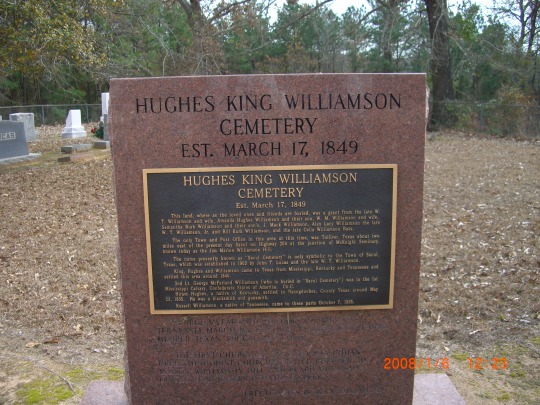

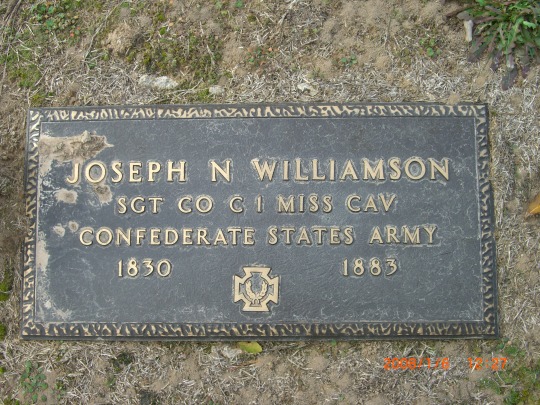
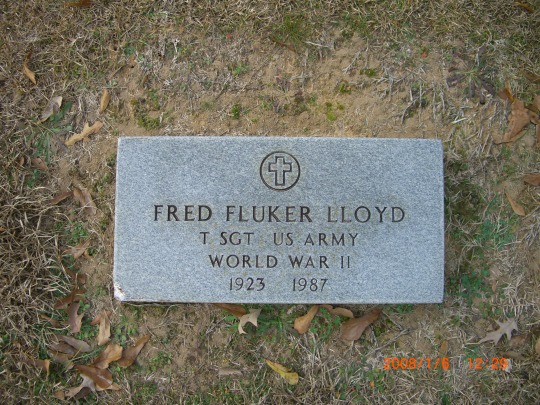




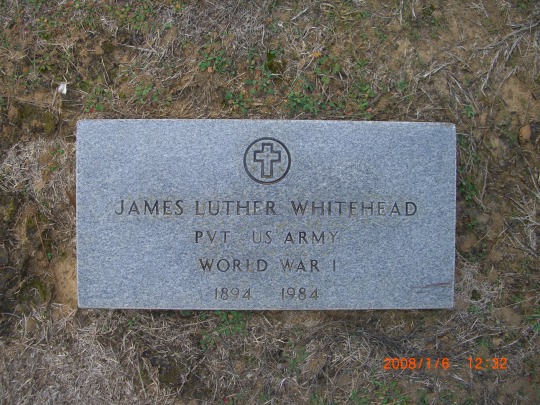

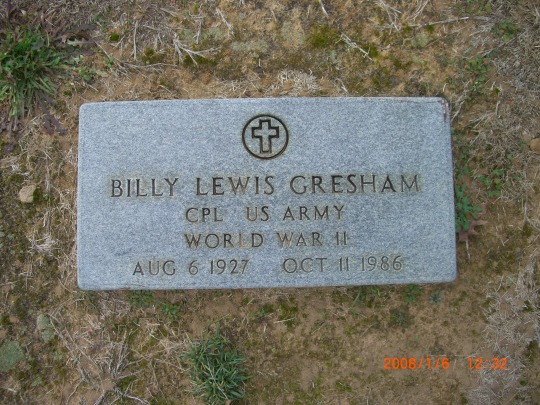
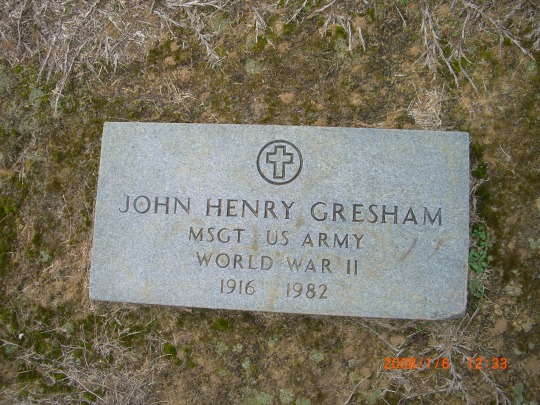
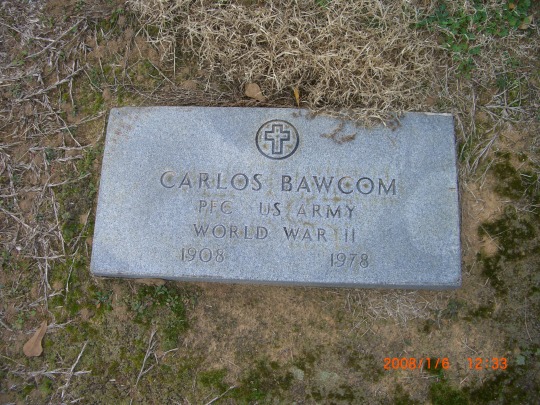

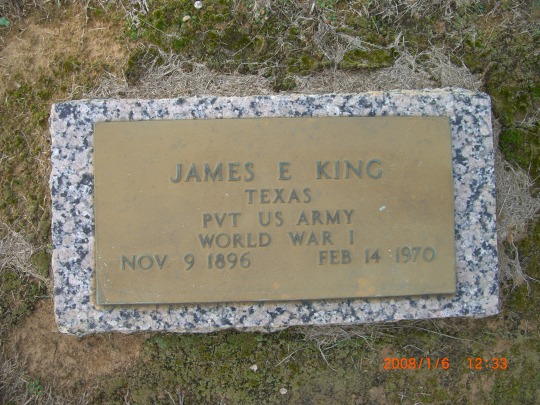
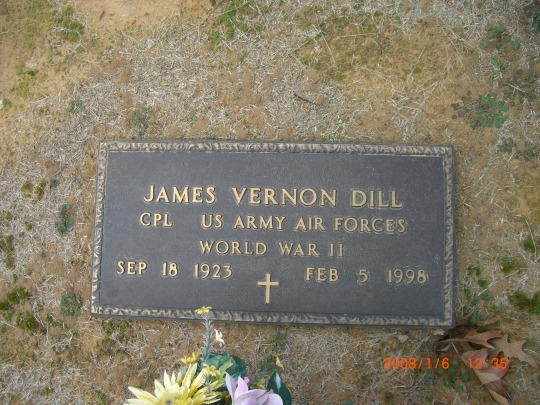
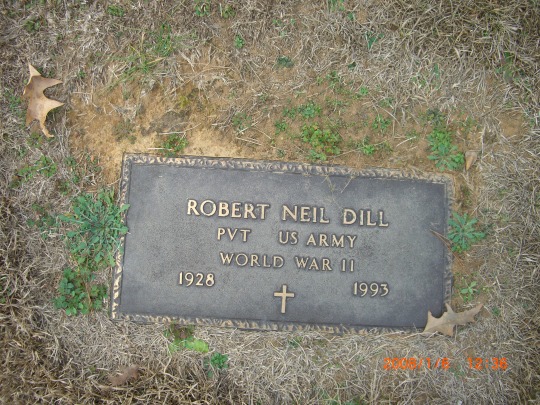




My last 6 months in the Army I ran one of the Funeral Details out of Fort Hood, a very humbling honor.
It also let me look into our collective past, these Soldiers, Marines, Sailors, and Airmen were all burred side by side even when the sides opposed each other.
That is something most just can't understand.
This cemetery is out side Nacogdoches Texas, and I can never thin of Nacogdoches without hearting this scene from Big Jake in my head.
youtube
Now I have to watch Big Jake.
13 notes
·
View notes
Text

The year is 1942.
Canada has sent troops to Great Britain to join the war effort. As opposed to the Canadian Expeditionary Forces that joined the Great War, this was the newly formed Canadian Armed Forces. As before, Canadian troops are used in many different aspects in the war effort.
In Canada, several air bases are set up to train pilots from all over the British Empire. In Ontario, manufacturing has begun on the Hawker Hurricane fighter planes in Fort William (now Thunder Bay).
By the end of the year, many were involved in espionage in order to help their side. Such was the case for Rylan Dubois and Eric Littlefeather of the Royal Canadian Air Force.
Paired with British Majors, the two were integral to gathering information from the air. One fateful day, these two, along with Major Chester Cooper and Major Samuel Coldwell, were shot down over Poland. While the planes were damaged, they managed a controlled crash, landing in the forests outside Warsaw.
The two pairs quickly joined up after destroying their already wrecked planes in order to slow down the Nazis, and headed into the safety of the forest with the goal to get back to Allied territory. As they went further into the forest, they soon discovered they weren't alone.
Major Cooper thought that it might be German guards, but they soon discovered it was fearful civilians. Jews who had escaped from the Warsaw Ghetto. It was at this point both Rylan and Eric had an idea.
It took some convincing, but eventually the two Majors agreed. The plan was simple; the entire group would move together, four Allied airmen and over 250 Jews, with the hope that they would appear, by some form of magic, in Brentwood. Both Rylan and Eric had been taught the stories from the past of large groups of people appearing in the area. The lost, the afraid, those needing comfort and aid, those looking for safety and a new life. Maybe that would happen here.
They moved quietly and quickly, hearing the cries of German guards in the forest behind them. It wasn't long, but Major Coldwell saw some light in the break of the trees and he spied a flag. A Canadian Red Ensigh, flying from the top of a building.
Both Coldwell and Cooper had no idea how it happened, but they had suddenly been transported from Warsaw, Poland to Brentwood, Saskatchewan. Rylan suggested they move up the street, toward a residential area, as they still heard the cries of German guards behind them.
Four airmen and over 250 Jews walked down the street, into the French district of Brentwood. Rylan recognized a house, and even though it was dark, he approached the door and began banging loudly. It was a couple of minutes before the door opened and a groggy, slightly angry man opened the door, but blinked as he saw the scene outside.
"Rylan, what the hell is going on?" he asked, then saw Eric. "Eric? I thought you two were in Europe!"
"We were," Rylan said. "But we need a phone. We need to call the hospital and the police." He looked back to the crowd that had gathered in the man's front yard.
The man nodded and ran to his phone, calling both police and hospital. Soon, the roar of sirens could be heard. Eric, along with the two Majors, calmed the people down, but tensions rose as they spied three figures at the end of the street. An SS guard and two other soldiers, they began running toward them, weapons drawn.
Two police cars and an ambulance roared to a stop as the three soldiers stopped. Doors opened as RCMP officers stepped out, Eric and Rylan approached on of the officers, Staff Sergeant Malcolm Stanley, and quickly explained the situation.
Stanley barked out an order to his men in French. His officers drew their weapons, training them on the three guards as the imposing figure of Malcolm Stanley approached the soldiers.
"You're a long way from home," he called out, catching the SS soldier off guard.
"We have orders to take..." the officer began as he pointed toward the crowd. Stanley quickly interrupted him.
"You're not in Poland right now," Stanley remarked in a stern voice. His gaze looked behind the officer for a moment. Four more cruisers and an ambulance approached. The cruisers came to a stop as six more constables got out and drew their weapons. The ambulance raced by stopping only in front of the crowd. "This is Canada." Stanley held out his hand toward the officer and the two guards. "Your weapons. On the ground now. Or this could get ugly very fast."
After a tense moment, the three Nazis soldier surrendered their weapons and raised their hands. Officers rushed forward, removing any other weapons and placing the three in handcuffs.
"What will happen to us?" the SS officer demanded.
Stanley looked to the officer with a stern look on his face. "You'll be transported to Cold Lake, Alberta. There's an armed forces base there. But first, you'll be guests at the Brentwood RCMP detachment cells. After you're in custody of the armed forces, you'll most likely be transported to a prisoner of war camp in Northern Ontario."
"We have every right to..."
"You are an enemy of Great Britain and her Allies, which includes Canada," Stanley said again, his voice loud enough to be heard by the crowd. "And you are in Canada now. I am an officer of His Majesty's Royal Canadian Mounted Police. You, sir, and your two comrades are under arrest."
Dejected, the three complied and were taken into custody. Major Cooper approached Stanley. "I wouldn't have believed it if I hadn't seen it myself. All of us appearing nearly halfway across the world in the blink of an eye."
"I'll be honest with you, Major," Stanley said as he watched the cruisers head off with their prisoners in tow. "I had never seen it before myself. But I'd heard the stories."
"What'll happen with ..." Cooper said as he motioned back to the crowd.
"We'll set them up in housing," Stanley replied. "Like everyone else who has arrived in Brentwood. They'll be safe here."
0 notes
Text
Events 8.20 (after 1930)
1938 – Lou Gehrig hits his 23rd career grand slam, a record that stood for 75 years until it was broken by Alex Rodriguez.
1940 – In Mexico City, exiled Russian revolutionary Leon Trotsky is fatally wounded with an ice axe by Ramón Mercader. He dies the next day.
1940 – World War II: British Prime Minister Winston Churchill makes the fourth of his famous wartime speeches, containing the line "Never was so much owed by so many to so few".
1940 – World War II: The Eighth Route Army launches the Hundred Regiments Offensive, a successful campaign to disrupt Japanese war infrastructure and logistics in occupied northern China.
1944 – World War II: One hundred sixty-eight captured allied airmen, including Phil Lamason, accused by the Gestapo of being "terror fliers", arrive at Buchenwald concentration camp.
1944 – World War II: The Battle of Romania begins with a major Soviet Union offensive.
1948 – Soviet Consul General in New York, Jacob M. Lomakin is expelled by the United States, due to the Kasenkina Case.
1949 – Hungary adopts the Hungarian Constitution of 1949 and becomes a People's Republic.
1955 – Battle of Philippeville: In Morocco, a force of Berbers from the Atlas Mountains region of Algeria raid two rural settlements and kill 77 French nationals.
1960 – Senegal breaks from the Mali Federation, declaring its independence.
1962 – The NS Savannah, the world's first nuclear-powered civilian ship, embarks on its maiden voyage.
1968 – Cold War: Warsaw Pact troops invade Czechoslovakia, crushing the Prague Spring. East German participation is limited to a few specialists due to memories of the recent war. Only Albania and Romania refuse to participate.
1975 – Viking program: NASA launches the Viking 1 planetary probe toward Mars.
1975 – ČSA Flight 540 crashes on approach to Damascus International Airport in Damascus, Syria, killing 126 people.
1977 – Voyager program: NASA launches the Voyager 2 spacecraft.
1986 – In Edmond, Oklahoma, U.S. Postal employee Patrick Sherrill guns down 14 of his co-workers and then commits suicide.
1988 – "Black Saturday" of the Yellowstone fire in Yellowstone National Park
1988 – Iran–Iraq War: A ceasefire is agreed after almost eight years of war.
1988 – The Troubles: Eight British soldiers are killed and 28 wounded when their bus is hit by an IRA roadside bomb in Ballygawley, County Tyrone.
1989 – The pleasure boat Marchioness sinks on the River Thames following a collision. Fifty-one people are killed.
1991 – Dissolution of the Soviet Union, August Coup: More than 100,000 people rally outside the Soviet Union's parliament building protesting the coup aiming to depose President Mikhail Gorbachev.
1991 – Estonia, occupied by and incorporated into the Soviet Union in 1940, issues a decision on the re-establishment of independence on the basis of legal continuity of its pre-occupation statehood.
1992 – In India, Meitei language (officially known as Manipuri language) was included in the scheduled languages' list and made one of the official languages of the Indian Government.
1993 – After rounds of secret negotiations in Norway, the Oslo Accords are signed, followed by a public ceremony in Washington, D.C. the following month.
1995 – The Firozabad rail disaster kills 358 people in Firozabad, India.
1997 – Souhane massacre in Algeria; over 60 people are killed and 15 kidnapped.
1998 – The Supreme Court of Canada rules that Quebec cannot legally secede from Canada without the federal government's approval.
1998 – U.S. embassy bombings: The United States launches cruise missile attacks against alleged al-Qaeda camps in Afghanistan and a suspected chemical weapons plant in Sudan in retaliation for the August 7 bombings of American embassies in Kenya and Tanzania.
2002 – A group of Iraqis opposed to the regime of Saddam Hussein take over the Iraqi embassy in Berlin, Germany for five hours before releasing their hostages and surrendering.
2006 – Sri Lankan Civil War: Sri Lankan Tamil politician and former MP S. Sivamaharajah is shot dead at his home in Tellippalai.
0 notes
Text
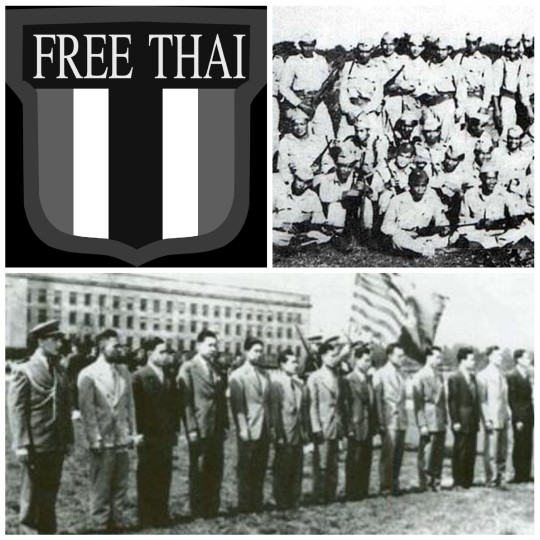
• Free Thai Movement
The Free Thai Movement (Thai: เสรีไทย; RTGS: Seri Thai) was a Thai underground resistance movement against Imperial Japan during World War II.
In the aftermath of the Japanese invasion of Thailand in December 1941, the regime of Plaek Phibunsongkhram (Phibun) declared war on the United Kingdom and the United States on January 25th, 1942. Seni Pramoj, the Thai ambassador in Washington, refused to deliver the declaration to the United States government. Accordingly, the United States refrained from declaring war on Thailand. Seni, a conservative aristocrat whose anti-Japanese credentials were well established, organized the Free Thai Movement with American assistance, recruiting Thai students in the United States to work with the United States Office of Strategic Services (OSS). The OSS trained Thai personnel for underground activities, and units were readied to infiltrate Thailand.
Phibun's alliance with Japan during the early years of war was initially popular. The Royal Thai Army joined Japan's Burma Campaign with the goal of recovering their historical claims to part of the Shan states, previously surrendered to the Burmese Empire in the Burmese–Siamese wars and subsequently annexed by the British following the Third Anglo-Burmese War. They gained the return of the four northernmost Malay states lost in the Anglo-Siamese Treaty of 1909, and with Japanese mediation in the Franco–Thai war they also recovered territory lost in the Franco-Siamese War of 1893. However, Japan had stationed 150,000 troops on Thai soil, and as the war dragged on, the Japanese increasingly treated Thailand as a conquered country rather than an ally. Although the United States had not officially declared war, on 26 December 1942, US Tenth Army Air Force bombers based in India launched the first major bombing raid, which damaged targets in Bangkok and elsewhere and caused several thousand casualties.
Meanwhile in the United States, under Seni’s guiding hand, and the leadership of Gen. William Donovan’s Office of Strategic Services (OSS), the “Free Thai” movement was born. Seni brought young Thai student volunteers from universities across the United States together into a Free Thai command, which was to serve under Donovan’s OSS. The Free Thai agents were among Thailand’s best and brightest. They set aside promising academic programs at Harvard, Cornell, the Massachusetts Institute of Technology, and elsewhere in favor of difficult military training and uncertain futures. Following training by the OSS, many volunteers undertook lengthy and dangerous treks from China and Indochina to make contact with supporters opposed to the Japanese presence. For months, the Free Thai forces worked to infiltrate their homeland. Many were captured, killed, or simply went missing.
Finally, in October 1944, the OSS Detachment in Szemao, China, received a radio message from Free Thai agents in a Bangkok safehouse. Thereafter, other agents were dispatched into Thailand by submarine, seaplane, and airdrop. The heroism and ingenuity of the Free Thai forces, working hand-in-hand with the OSS, set the stage for important intelligence collection. The agents provided critical support to Allied military operations in Southeast Asia and ensured Thailand’s post-war independence. In June 1944, Phibun was forced out of office and replaced by the first predominantly civilian government since the 1932 coup. Allied bombing raids continued, and a B-29 raid on Bangkok destroyed the two key power plants on April 14th, 1945, leaving the city without power and water. Throughout the bombing campaign, the Seri Thai network was effective in broadcasting weather reports to the Allied air forces and in rescuing downed Allied airmen. The new government was headed by Khuang Aphaiwong, a civilian linked politically with conservatives such as Seni. The most influential figure in the regime, however, was Pridi Banomyong (who was serving as Regent of Thailand), whose anti-Japanese views were increasingly attractive to the Thais.
In the last year of the war, Allied agents were tacitly given free access by Bangkok. As the war came to an end, Thailand repudiated its wartime agreements with Japan. Unfortunately, the civilian leaders were unable to achieve unity. After falling-out with Pridi, Khuang was replaced as prime minister by the regent's nominee, Seni, who had returned to Thailand from his post as leader of the Free Thai movement in Washington. The scramble for power among factions in late 1945 created political divisions among the civilian leaders that destroyed their potential for making a common stand against the resurgent political force of the Thai military in the immediate postwar years. Postwar accommodations with the Allies also weakened the civilian government. As a result of the contributions made to the Allied war efforts by the Free Thai Movement, the United States, which unlike other Allied countries had never officially been at war with Thailand, refrained from dealing with Thailand as an enemy country in postwar peace negotiations. Before signing a peace treaty, however, the United Kingdom demanded war reparations in the form of rice shipments to Malaya, and France refused to permit admission of Thailand to the United Nations (UN) until the Indochinese areas regained by the Thais during the war were returned to France.
Some famous members of the Free Thai Movement include; Queen Rambai Barni, widow of King Prajadhipok and nominal head of the Seri Thai in the United Kingdom, Prince Suphasawatwongsanit Sawatdiwat, Queen Rambai Barni's brother, a former Royal Thai Army officer, Thawi Bunyaket, Prime Minister of Thailand 1945, Air Marshal Dawee Chullasapya, and Siddhi Savetsila, later Air Chief Marshal of the Royal Thai Air Force, Foreign Minister of Thailand, Deputy Prime Minister of Thailand, and Privy Councillor to King Bhumibol Adulyadej.
#second world war#world war 2#world war ii#wwii#history#american history#thailand#free thai movement#thai history#siam#resistance movements#espionage
23 notes
·
View notes
Text
Washington Swifts- Rebranding Synthesis and Mood Board
The background of the Washington Redskins is that it is a team based out of the Washington Metro area. But originally it was the team the Boston Braves then changed and relocated in DC. The colors of the team are Burgundy and gold. Their current mascot and name are being changed because of controversy. The marketing objective when rebranding the redskins is to come up with. Bold logo and brand that represents the Washington D.C. area where all fans can recognize the team. The name and mascot need to change so that everyone is happier with it, and the team is represented by something strong rather than controversial. The target audience when rebranding this team is the current fans, the opposing teams and the Washington area. To create something recognizable that stands out to more than just the diehard fans. When researching more about the Washington D.C. area, we found a lot about the wildlife and important parts of D.C. An animal that stuck out when researching is the Chimney Swift bird. This bird is recognizable in this area and is a representation of flight taking off from the old brand of the redskins and a strong representation of what a good team looks like. A similarity to the bird is a plane. Using a bird also has meaning to the Tuskegee Airmen and the Red-tails. Whether it is a plane wing, or a bird wing a wing is a great symbol for the new brand.

1 note
·
View note
Text
Never forget the Porajmos - the genocide of over a million Romani people by the Nazis.
Never forget the Farhud, a Nazi-inspired pogrom in Iraq, 1941.
Never forget the Nazis also killed Sephardi and Mizrahi Jews.
Never forget Aktion T4, the so-called “mercy killings” (genocide) of those called “useless eaters” (disabled people).
Never forget that this policy of eugenics was directly inspired by the USA’s eugenics movement and purposefully exported there.
Never forget that the parents of the first disabled child killed in Aktion T4 wanted their child dead.
Never forget the hundreds of Black Germans who were forcibly sterilised by the Nazis.
Never forget the “inverts” and “homosexuals” who were rounded up and sent to their deaths because they were deemed a threat to the “Aryan Race.”
Never forget the “nice Germans” who didn’t “care about politics” and silently watched their neighbours be taken away to be tortured and killed.
Never forget the Resistance.
Never forget the anti-fascists and the Partisans who were of many nations, including Jews, who fought the Nazis and rescued concentration camp survivors.
Never forget the Warsaw Ghetto Uprising, an armed resistance of Jewish people that saved thousands of lives from the concentration camps.
Never forget the smaller acts of resistance like industrial sabotage practiced by those in the concentration camps to reduce their contribution to the Nazi war machine.
Never forget the communists, anarchists, trade-unionists, and other radicals who opposed Nazism and who were incarcerated and killed.
Never forget the Danish gentiles who saved 90% of its Danish Jewish population of 7,000 while under years of Nazi occupation.
Never forget that the United States of America’s xenophobic, racist, eugenicist, antisemitic, ableist, and anti-Romani immigration quotas policy condemned millions of people to death.
Never forget the fate of the M.S. St. Louis.
Never forget that Nazism was fairly popular in the USA until Germany declared war on it.
Never forget that antisemitism persisted during that time and was heightened during the McCarthyism.
Never forget the Sozialdemokratische Partei Deutschlands (Social Democratic Party of Germany) who violently suppressed political radicals (including killing the Jewish communist Rosa Luxemberg and other members of the KPD) during the Wiemar Republic, inadvertently aiding the Nazis.
Never forget that this and their “lesser of two evils” strategy led Hitler to become Chancellor.
Never forget Magnus Hirschfeld, a sexologist, Homosexual Transvestite*, and German Jew and his Institut für Sexualwissenschaft (Institute for Sexual Science). *his own terms
Never forget that the Nazis burned it and all the works in his library.
Never forget the “Masculunists” (the forerunner of today’s “homonationalists”), their hatred for Magnus Hirschfeld, and their support of the Nazis who later betrayed them in the Night of Long Knives after using them like the tools they were.
Never forget Willem Arondeus, a Dutch Homosexual gentile artist, writer, and resistance leader who led a group in bombing the Amsterdam Public Records Office on July 1st 1943 in order to hinder the Nazi round-up of Jews.
Never forget his final words: “Let it be known that homosexuals are not cowards.”
Never forget Chiune Sugihara who saves tens of thousands of Lithuanian Jews by disobeying orders and giving them (often false) visas.
Never forget that the city of Shanghai brought in tens of thousands of Jews, more than any USA city.
Never forget the USSR, not the USA or Britain, liberated most of the concentration camps and captured Berlin, ending the war.
Never forget the Japanese-Americans who liberated Dachau that USA textbooks never mention.
Never forget the Kapos.
Never forget that the world knew.
Never forget all the Holocaust survivors who escaped the concentration camps and arrived in Britain, the USA, and the USSR and told the world their stories.
Never forget the silence.
Never forget that the entire chain of command for the USA, including President Roosevelt, ordered the air force not to bomb the railways leading to Auschwitz and the gas chambers which would have saved thousands.
Never forget that it was the Tuskegee Airmen – a racially segregated, all-Black division – that disobeyed orders and bombed the railways to Auschwitz.
Never forget that Hitler’s plans of genocide were inspired by the United States of America’s genocide of its Indigenous Peoples.
Never forget Henry Ford and all the other American Nazi-collaborators.
Never forget the pogroms just after the Holocaust officially ended.
Never forget that never again means never again to anyone.
Never forget the betrayal.
Never forget the solidarity.
Never forget that “first they came for the Socialists.”
Never forget that an injury to one is an injury to all.
57 notes
·
View notes
Link
Any current critics calling for the use of American trip-wire soldiers to protect Kurds from the Turkish military — in the current stated mission to defeat ISIS and keep it defeated — should at least make the case that de facto fighting against Turkey means that it is therefore no longer a friend and should no longer be a NATO ally, and thus, in extremis, can be opposed militarily, and also that we can do without its geographic access and bases in the Middle East without harming ourselves or our interests. And note they should also assume that Turkey, out of spite, will release millions of refugees into Europe, and it will react to friction with Americans troops in Syria in who knows what fashion to their U.S. counterparts now stationed with nuclear weapons at Incirlik Air Base inside Turkey. Do we really wish to risk a shooting war with a NATO ally while 5,000 American airmen are inside its country equipped with 50 nuclear weapons?
Or barring that, they should at least argue that the current NATO roster is now becoming a farce, and Turkey’s membership in it a cruel joke — and we can therefore ignore all that when we like and as we please.
no one said ant of this is pretty. We should have been unraveling this some time ago.
Maybe we should have shot Erdogan‘s plane down when we had the chance
2 notes
·
View notes
Link
On Thursday evening, the United States military was ten minutes away from launching a series of air and missile strikes on Iran that risked sparking a massive new war leading to the deaths of hundreds of thousands of people.
The strikes were called off at the last moment, amid deep divisions at the highest levels of the White House and the Pentagon over the consequences—military, diplomatic and political—of what would likely be the single most dangerous and reckless action of the entire Trump presidency.
While Trump’s foreign policy team—headed by National Security Advisor John Bolton and Secretary of State Mike Pompeo—“unanimously” supported the attack, General Joseph Dunford, the Chairman of the Joint Chiefs of Staff, “cautioned about the possible repercussions of a strike, warning that it could endanger American forces,” the Times wrote.
According to the Wall Street Journal, Trump “changed his mind because he had second thoughts about the military and political consequences.” Or, as Stratfor, put it, “Trump, fearing a much bigger escalation, got cold feet.”
While much of the discussion has been centered on the American president’s last-minute decision, the entire episode underscores the recklessness that pervades all aspects of American foreign policy.
Discounting Trump’s claim that his decision to call off the bombing was motivated by squeamishness over the loss of 150 Iranian lives, it is evident that the United States came within minutes of launching a war whose military consequences it had not seriously examined.
The planned enterprise was based, again, on disastrous miscalculations, this one being that Iran would stand helplessly by as the US military launched yet another wave of bombings.
But Iran’s downing Thursday of a $130 million RQ-4 Global Hawk high-altitude spy plane, the nominal pretext for the planned strike, had clearly taken US officials by surprise.
As it turned out, Iran’s downing of the drone seemed at the last minute to have convinced sections of the military, and Trump himself, that the consequences of their planned assault on Iran could be far more serious than they had expected. If they were surprised by this development, what other surprises would have followed had a war begun?
The real reason for the reversal, to be blunt, was the fear that American warships could be sunk and American aircraft would be shot down, puncturing the myth of America’s military invincibility.
The American surveillance drone was shot down by a Raad air defense system, an Iranian surface-to-air missile generally regarded to be far less capable than the Russian-made S-300 and S-400 systems also available to the Iranian military.
The clear message was that Tehran was also capable of downing other aircraft, including American F-35 fighters that Trump routinely praises as “invisible,” or even the $2 billion B-2 Spirit “stealth” bomber.
Iran recently deployed a new range of anti-ship missiles, which it claims have the ability to sink American destroyers and carriers in the Gulf of Oman and Persian Gulf. “Commit the slightest stupidity, we will send these ships to the bottom of the sea along with their crew and planes,” Iranian General Morteza Qorbani warned RT.
The strikes against Iran would likely have been carried out by the USS Abraham Lincoln aircraft carrier and its associated battle group, consisting of at least three destroyers and one cruiser. But under these conditions, the US military was forced to see these ships not just as military assets, but as liabilities. What would be the consequences of Iran sinking a $2 billion destroyer and killing a substantial portion of its nearly 300 crew?
If Iran sank the Nimitz-class carrier USS Abraham Lincoln, with 5,000 sailors and airmen aboard, the consequences would be incalculable.
As a former member of Iran’s Revolutionary Guards told the Times, “What happened in the past 48 hours was extremely important in showing Iran’s strength and forcing the U.S. to recalculate… No matter how you look at it, Iran won.”
But the Iranians would be ill-advised to boast. The United States came within minutes of launching a war whose consequences had barely been considered. There is no reason to believe that the next incident will not have the catastrophic outcome that were narrowly avoided this time—whether against Iran or another target. (One need only recall that after nearly 250 American soldiers were killed in the 1983 Beirut barracks bombings, US President Reagan responded two days later by invading Grenada.)
The entire US foreign policy establishment, even if some are prepared to admit that there had been insufficient consideration of the consequences of an attack on Iran, are deeply frustrated by the outcome.
“The Trump administration should respond to these recent attacks with strikes of its own on Iranian and Houthi air-defense assets, offensive missile systems and Revolutionary Guard Corps bases,” wrote Michael G. Vickers, Obama’s undersecretary of defense for intelligence in the Washington Post. He added, “Failure to hit back will only embolden them further.”
Martha Raddatz, hosting ABC’s This Week, pressed the Texas war hawk Representative Mac Thornberry whether “anything less than a military retaliatory strike” would be proportional “after they shot down an $130 million drone in an unprovoked attack?”
The recklessness of the US threats against Iran can only be explained by the enormous crisis, global and domestic, that confronts American capitalism.
Trump does nothing more than give the most grotesque expression to the manic impulses of American imperialism. One moment he is within minutes of launching a missile strike against Iran, then he is talking about making “Iran great again,” and then he is threatening to “obliterate” the country.
This level of instability does not have its source in an individual. Trump himself is buffeted by forces that he is not even intellectually capable of understanding.
Thirty years of endless war have created a veritable cult of militarism within the American ruling elite, whose guiding assumption seems to be that wars can be waged without drastic global consequences, including for the United States itself.
There are parallels to the recklessness that prevailed before 1914, not to mention the desperation that led Hitler to launch the Second World War in 1939, and just 78 years ago yesterday, Nazi Germany’s catastrophic invasion of the Soviet Union.
The United States has responded to every foreign policy disaster—from the invasion of Afghanistan and Iraq to the bombing of Syria and Libya—by preparing for new, and bigger, wars.
There does not exist any constituency within the American ruling elite or political establishment for opposing war, however catastrophic. American imperialism, as the World Socialist Web Site anticipated in 2003, has a “rendezvous with disaster.” Only the actions of the working class can prevent America’s capitalists, their generals, and their spies from taking the rest of humanity with them.
Andre Damon
2 notes
·
View notes
Photo
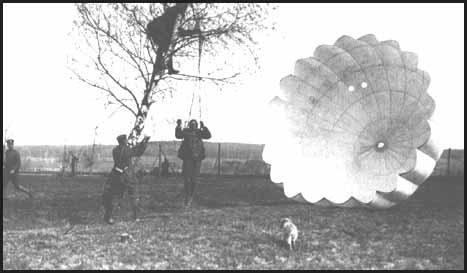
June 28, 1918 - First Use of Parachute to Escape Downed Plane
Pictured - A German pilot (more or less) safe and sound.
The parachute is an ancient concept, which the Chinese thought of at least 4,000 years ago. Its use in reality took much longer to develop, and it took even longer for parachutes to be used in war. The first parachute jumps happened form hot air balloons in the late 18th century, and by the beginning of World War One a parachute had been invented which could be deployed from a backpack.
For the majority of the First World War, however, the only airmen to be issued parachutes were balloonists. Balloons were used to look over enemy lines, and were a frequent, albeit heavily-defended, target for enemy planes. The crewmen could jump to safety with their parachutes if they needed. Commanders on both sides of the war opposed giving parachutes to aerial pilots, however, because they believed they might encourage men to abandon their posts in action rather than fighting through danger. WIthout parachutes, when pilots were shot down they often had to choose between leaping into the void or burning to death in their cockpits.
More understandably, parachutes were also complicated to use from a plane because they became easily entangled in parts of the machine. It also reduced the amount of fuel and ammunition a plane could carry. In summer 1918 the German aerial service changed its mind and issued pilots a parachute stored in the fuselage. It was too big to be worn by a pilot in the small cockpits of early aircraft. Nevertheless, parachutes saved many lives. Lieutenant Steinbrecher was the first pilot to survive with a parachute after being shot down over the Somme by the British. Later many other pilots came down alive with parachutes, including Hermann Goering. The Allies never issued parachutes to their pilots.
#ww1#ww1 history#ww1 centenary#1918#history#world war one#first world war#great war#aviation history
117 notes
·
View notes
Photo
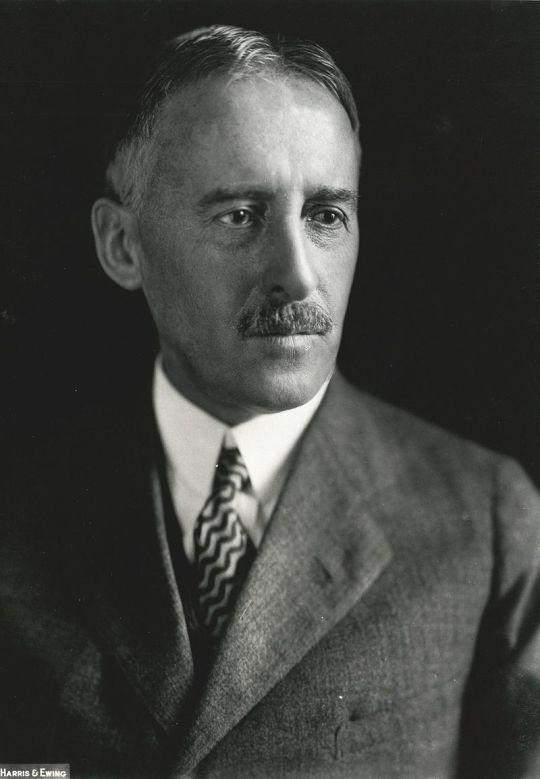
Henry Lewis Stimson (September 21, 1867 – October 20, 1950) was an American statesman, lawyer, and Republican Party politician. Over his long career, he emerged as a leading figure in U.S. foreign policy by serving in both Republican and Democratic administrations. He served as Secretary of War (1911–1913) under President William Howard Taft, Secretary of State (1929–1933) under President Herbert Hoover, and Secretary of War (1940–1945) under Presidents Franklin D. Roosevelt and Harry S. Truman.
The son of the surgeon Lewis Atterbury Stimson, Stimson became a Wall Street lawyer after he had graduated from Harvard Law School. He served as a United States Attorney under President Theodore Roosevelt and prosecuted several antitrust cases. After he was defeated in the 1910 New York gubernatorial election, Stimson served as Secretary of War under Taft. He continued the reorganization of the United States Army that had begun under his mentor, Elihu Root. After the outbreak of World War I, Stimson became part of the Preparedness Movement. He served as an artillery officer in France after the United States entered the war. From 1927 to 1929, he served as Governor-General of the Philippines under President Calvin Coolidge.
In 1929, President Hoover appointed Stimson as Secretary of State. Stimson sought to avoid a worldwide naval race and thus helped negotiate the London Naval Treaty. He protested the Japanese invasion of Manchuria, which instituted the Stimson Doctrine of nonrecognition of international territorial changes that are executed by force. After World War II broke out in Europe, Stimson accepted President Franklin Roosevelt's appointment to the position as Secretary of War. After the United States entered World War II, Stimson took charge of raising and training 13 million soldiers and airmen, supervised the spending of a third of the nation's GDP on the Army and the Air Forces, helped formulate military strategy, and oversaw the Manhattan Project to build the first atomic bombs. He supported the atomic bombings of Hiroshima and Nagasaki. During and after the war, Stimson strongly opposed the Morgenthau Plan, which would have deindustrialized and partitioned Germany into several smaller states. He also insisted on judicial proceedings against Nazi war criminals, which led to the Nuremberg trials.
Stimson retired from office in September 1945 and died in 1950.
https://en.wikipedia.org/wiki/Henry_L._Stimson
0 notes